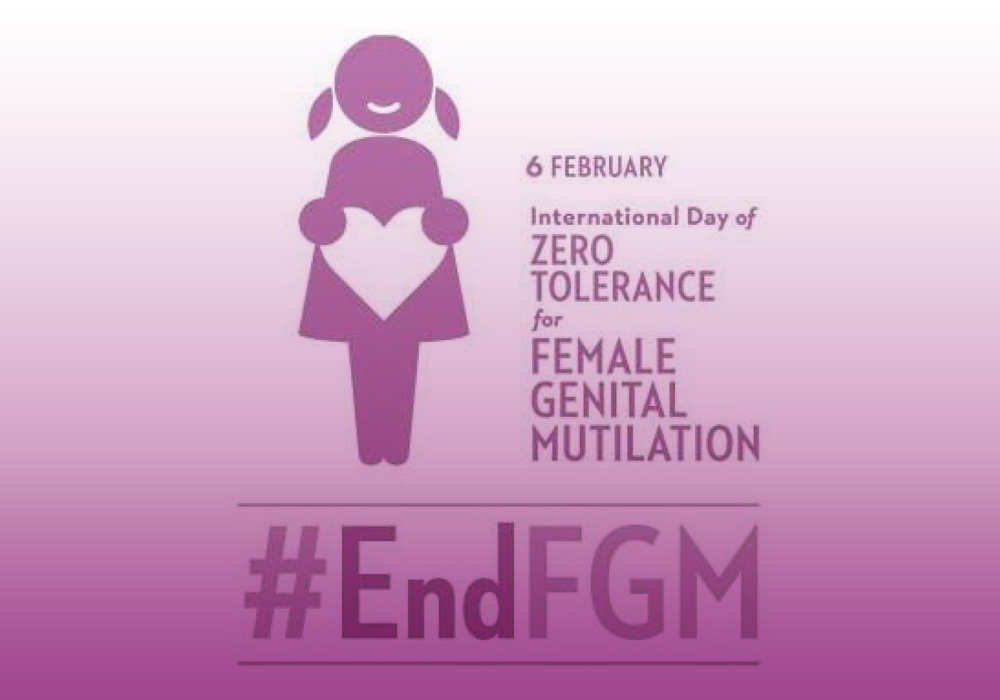Today is the International Day of Zero Tolerance for Female Genital Mutilation. So it is appropriate that members of the Iowa House have begun work on a bipartisan bill that would ban the heinous cultural practice in the Hawkeye State.
Iowa Rep. Steve Holt, R-Denison, chairman of the House Judiciary Committee, introduced House Study Bill 115 this week and assigned it to an all-female subcommittee consisting of Megan Jones, R-Sioux Rapids, Ashley Hinson, R-Marion, and Liz Bennett, D-Cedar Rapids. The introductory language of this bill is nearly identical to House File 63, which had been introduced last month by seven Democrats.
Currently, the offering makes non-medical female genital mutilation procedures as well as trafficking girls for such procedures Class D felonies. This is the lowest tier of felonies in Iowa, punishable by up to five years in prison and a fine ranging from $750 to $7,500.
As for the differences between the two bills, the new House study bill appears to only apply to underage girls. The earlier bill specifically outlines that consent by the person undergoing the procedure or, if that person is underage, by her parents or guardians is no defense. The study bill does not include this language.
While the earlier bill offered protections for a ‘physician licensed under chapter 148” who performed ‘a medical or surgical procedure” when ‘necessary to protect the health of the person” and when ‘performed on a person who is in labor of who has just given birth … for medical purposes connected with that labor or birth.” The study bill includes a ‘medical professional who holds a current license in this state necessary to perform the surgical procedure” when ‘necessary to protect the health of the minor” and when ‘performed on a minor who is in labor or who has just given birth and is performed for medical purposes connected with that labor or birth.”
The study bill adds a definition for the health necessity defense, indicating that ‘consideration shall not be given to any belief the minor or any other person holds that the surgical procedure is required based on custom or ritual.”
Both bills make trafficking for female genital mutilation a Class D felony; however, the study bill limits the criminal offense to those trafficking minors.
This push for a statewide ban, as I’ve written previously, is necessary because an earlier federal ban was struck down as part of a decision in a Michigan-based case. A U.S. district court judge ruled in November that female genital mutilation was ‘local criminal activity” under the purview of state regulators, not a commercial activity under the jurisdiction of Congress.
‘As despicable as this practice may be, it is essentially assault,” wrote Judge Bernard A. Friedman.
Recognized internationally as a violation of the human rights of girls and women, female genital mutilation most often is performed on young girls – younger than 15 – and rarely includes anesthetic. The Michigan case that struck down the federal law involved nine 7-year-old girls transported by their parents from neighboring states to a Detroit emergency room doctor for after-hours procedures.
While the study bill would protect underage girls, it affords no such consideration to adults. That’s a problem since the Centers for Disease Control and Prevention estimated in 2016 there were 513,000 women and girls in the U.S. who have either suffered the procedure or are at risk – a figure that doubled in a 15-year period. More than 5,000 are estimated to live in Iowa. And currently Iowa is surrounded by states, except for Nebraska, that have all made female genital mutilation some level of criminal offense. Missouri and South Dakota, which have fewer women and girls at risk than Iowa does, have two of the strongest laws in the nation.
If lawmakers fail to act, female genital mutilation will not be a criminal offense in the Hawkeye State, and the state could become a safe haven for such practices as other states act to close the new legal gap.
Advocates will want to closely monitor the House study bill, as well as any companion legislation introduced in the Iowa Senate, because we are early in the process and bill language still can change.
Removal of the U.S. ban followed a July report from the United Nations Secretary General that intensified global efforts to eliminate female genital mutilation. The report called on all nations to target groups of women and girls most at risk, regardless of geography.
‘On this Day of Zero Tolerance, I call for increased, concerted and global action to end female genital mutilation and fully uphold the human rights of all women and girls,” said Antonio Guterres, U.N. secretary-general.
Many Iowa-based organizations for women are echoing that message today as they inform their members about bills before the Iowa Legislature and participate in the International Day of Zero Tolerance. I encourage you to join them by contacting your lawmakers and asking them to support legislation that makes it a crime to cut women and girls.
This column by Lynda Waddington originally published in The Gazette on Feb. 6, 2019.

